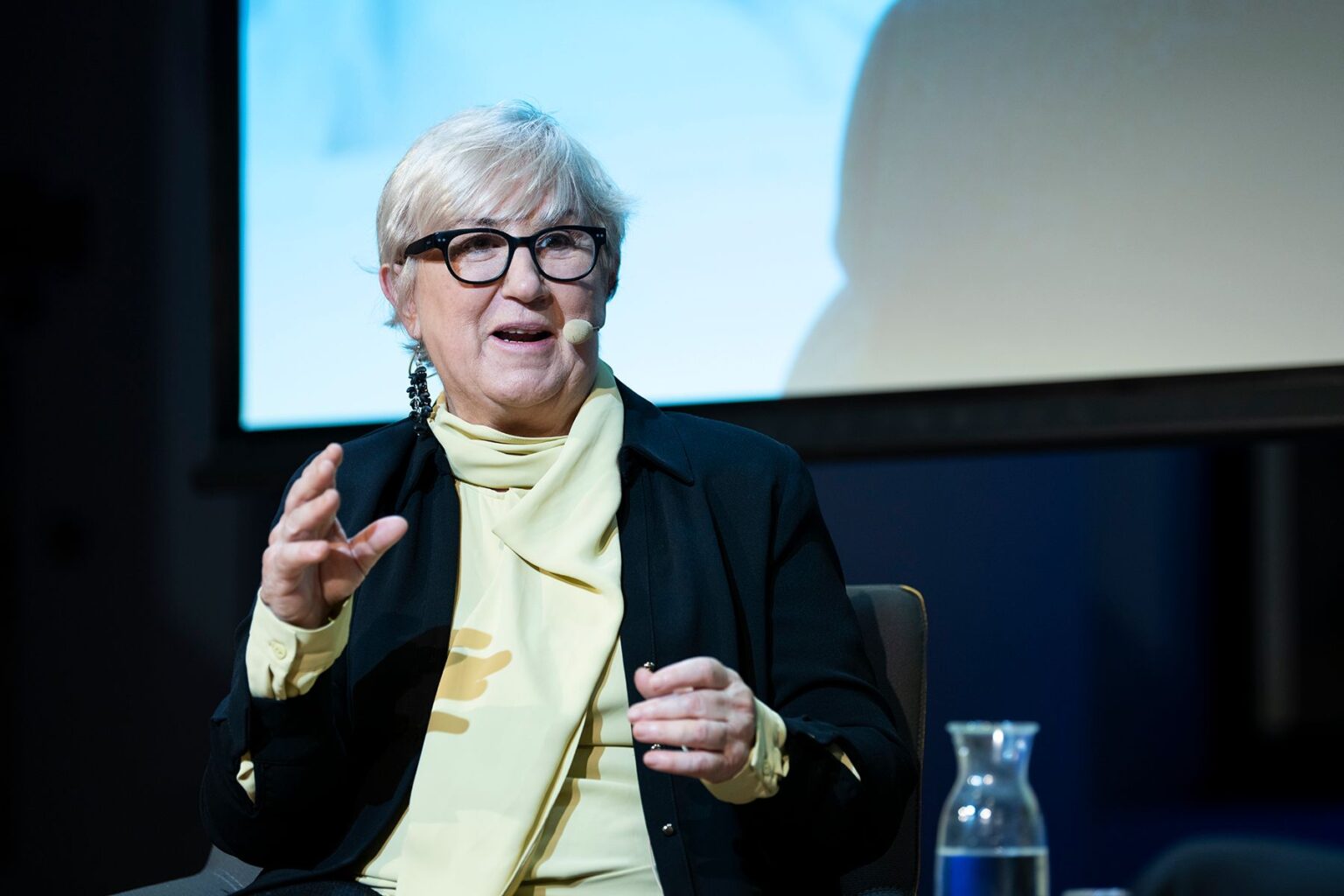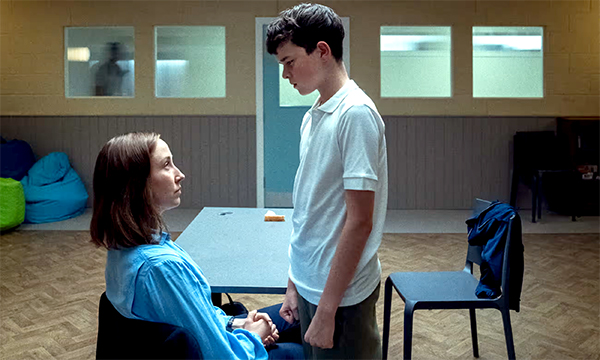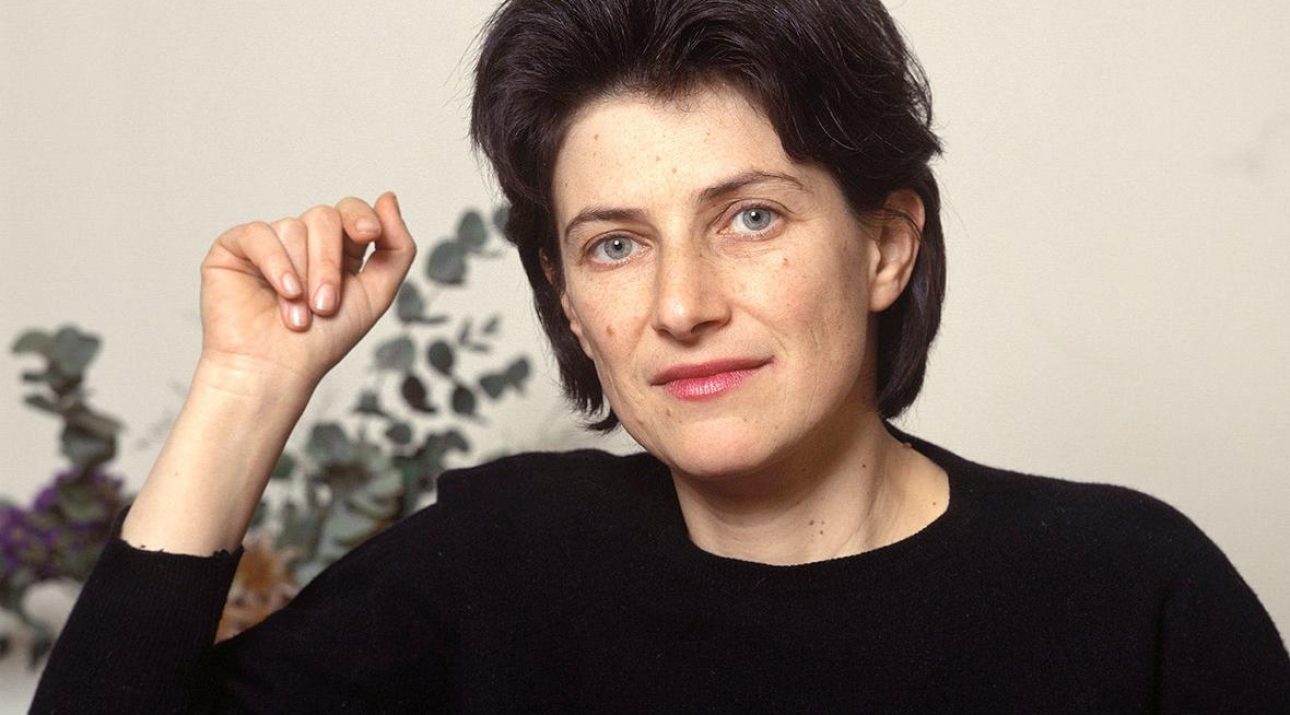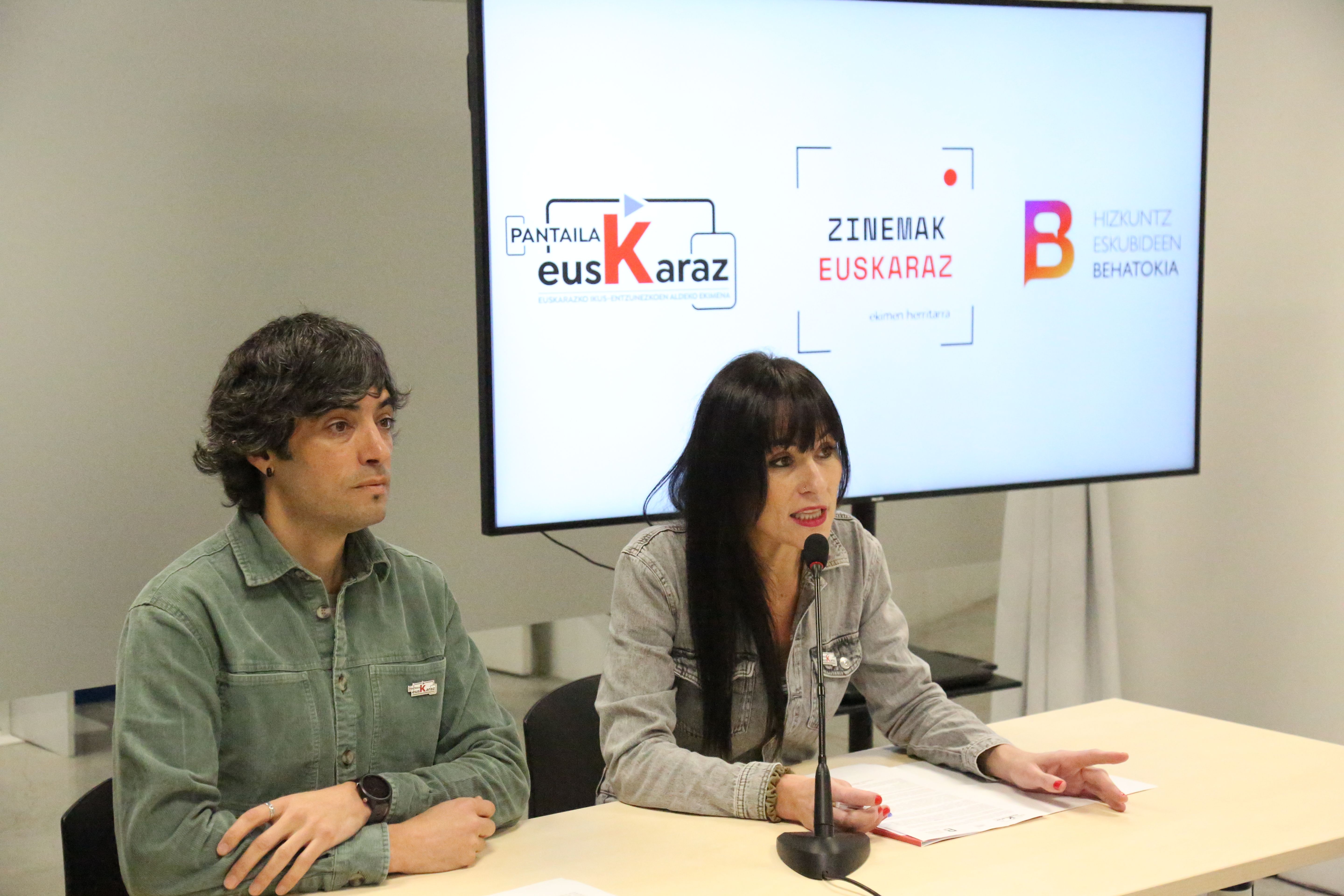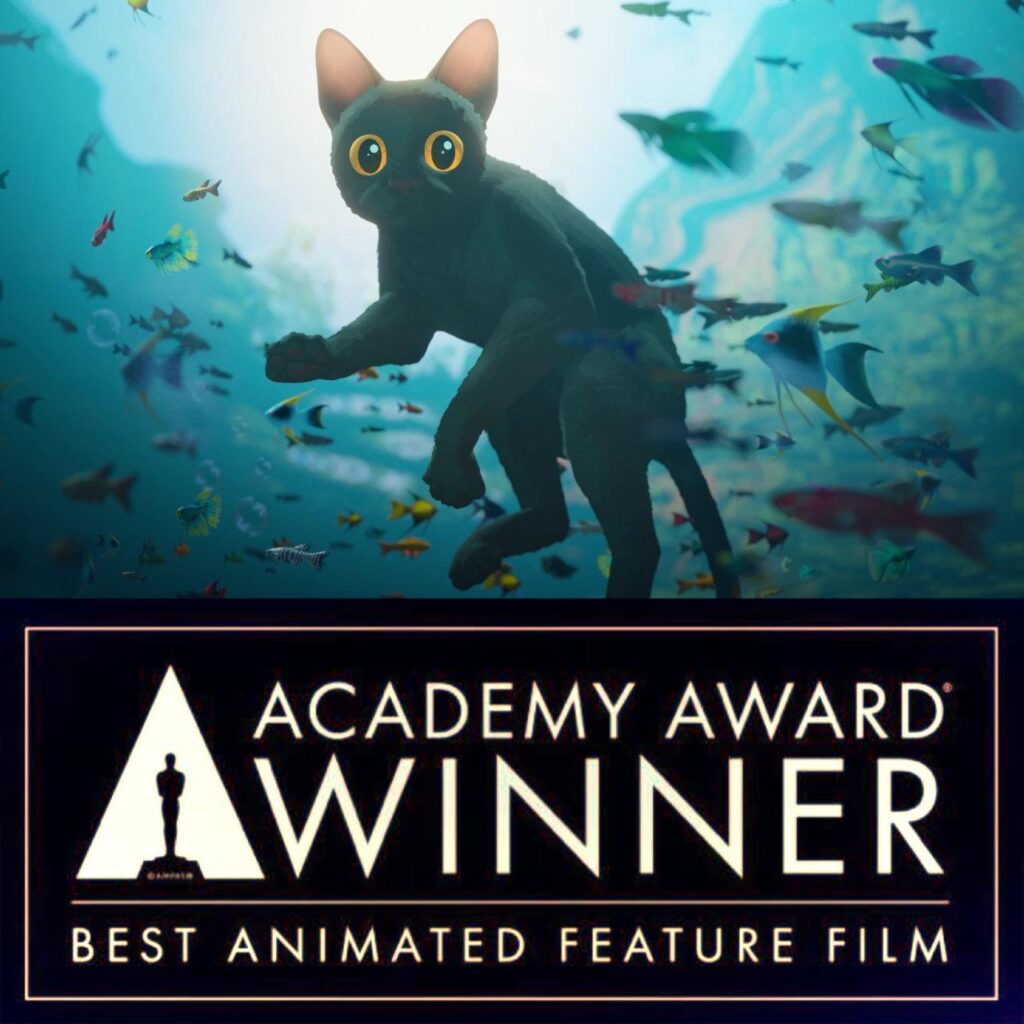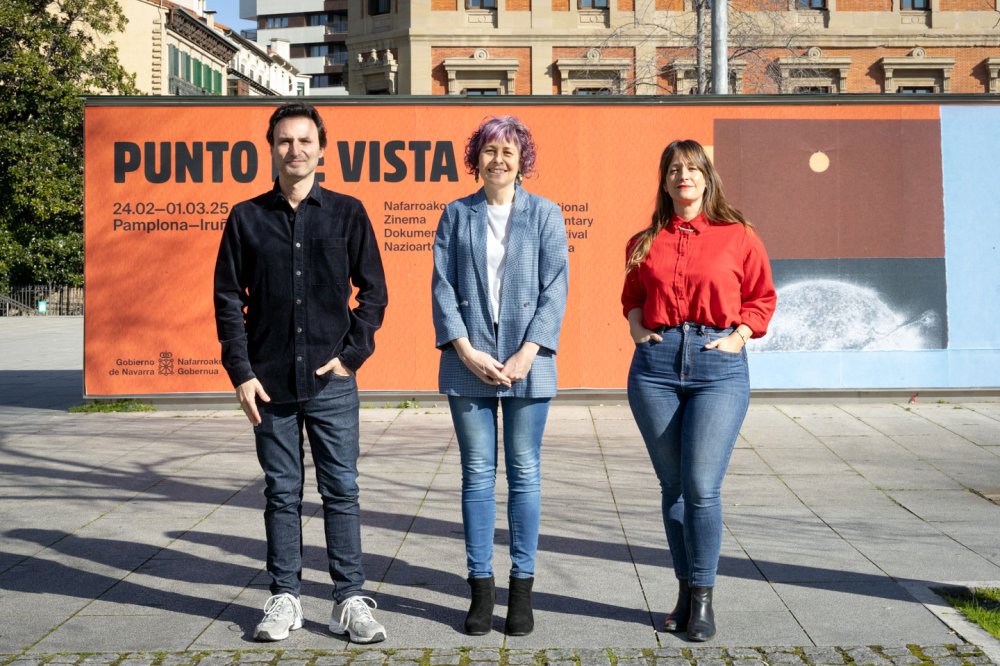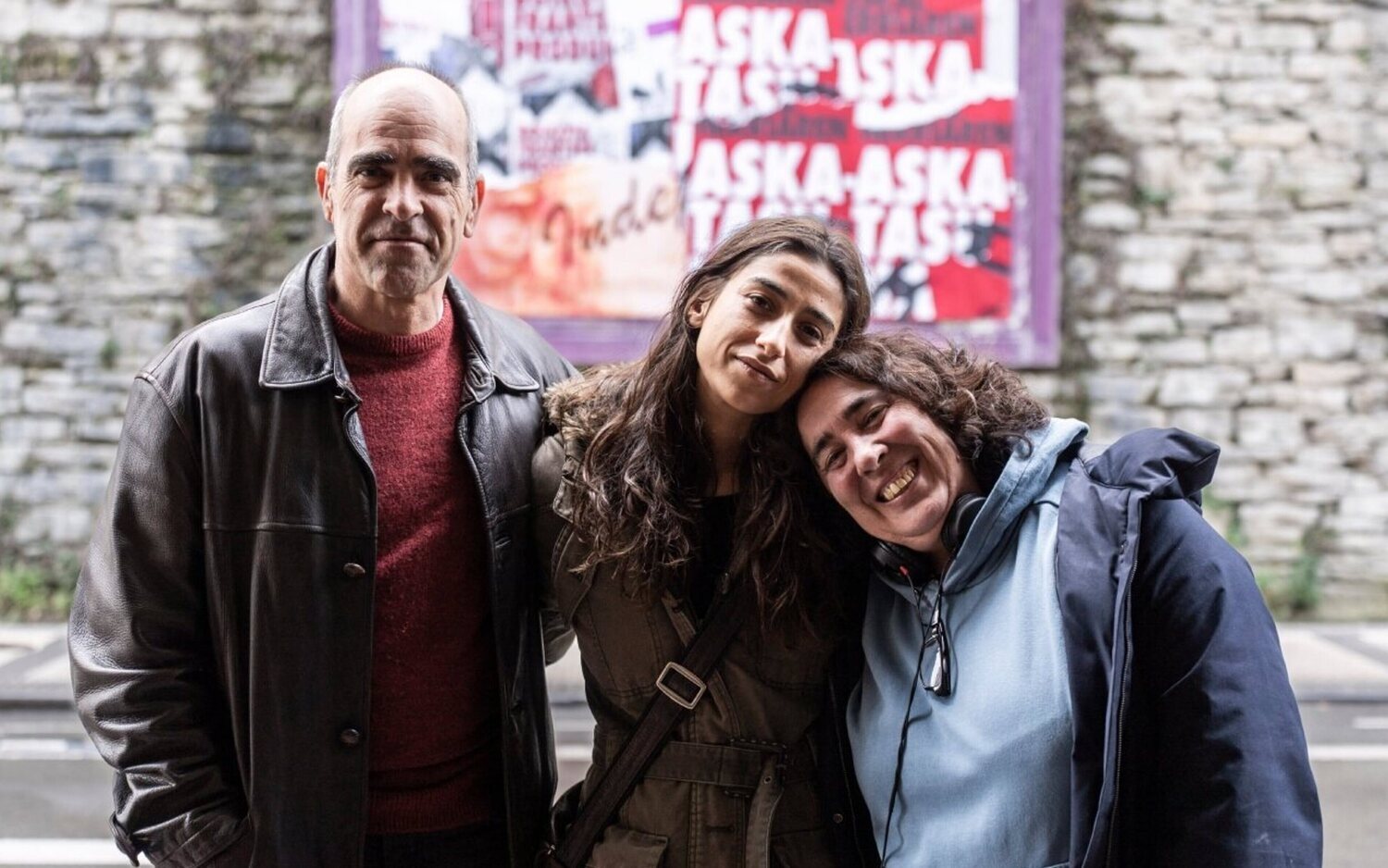"Music is vibrating, and that vibration causes another tremor in people."
- Lover of documentary films, nonsense. After talking about the never-ending precariousness and gentrification that many young people experience in their early films, Berri Txarrak and his hobby now tells us about the vibration that music produces in the documentary Dardara.
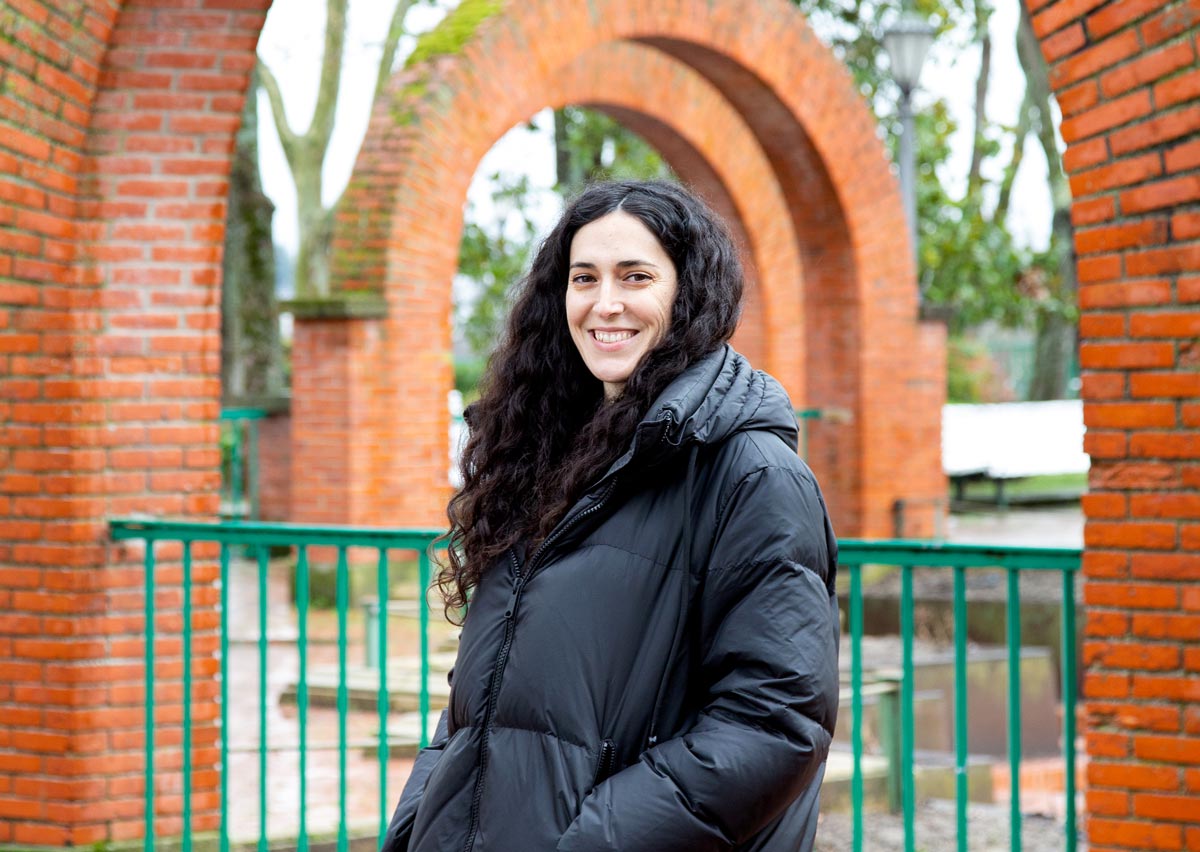
Ikus-entzunezko Komunikazioan lizentziaduna da Madrilgo URJC unibertsitatean. 2012an Bartzelonako Pompeu Fabra Unibertsitateko Sorkuntza Dokumentaleko Masterra egin zuen. 2013an muntaketan espezializatu zen, unibertsitate berean gradu-ondoko bat eginez. 2014 eta 2015 bitartean, New Yorken ikasten egon zen eta bertan 300 Nassau dokumental laburra zuzendu zuen, gentrifikazioa gai hartuta. Young & Beautiful (2018) bere lehen film luzea da, bere belaunaldiko hainbat gazteren erretratua. 2019an zehar Dardara grabatu du, Berri Txarrak taldearen eta bere jarraitzaileen inguruko dokumentala. Martxoaren 15ean estreinatuko da Ikuspuntu-Punto de Vista Zinema Dokumentalaren Nazioarteko Jaialdian eta 19an zinema-aretoetara iritsiko da.
You've almost spent half a lifetime before you go home. How has your nomadic career been?
I have moved on the basis of studies and the possibilities of work. In Madrid, when I was in college, I was born with the possibility of doing the fourth year in Mexico. Then, after the race was over, I moved to Mexico with my partner. Then I also lived in Barcelona and New York. After completing the studies, I felt that I had a kind of chasm in front of me. In 2016, I decided to go back to Pamplona. At the age of two, Young & Beautiful premiered and in 2019 I spent all year recording Darda and promoting the other. The longest time I spent at home was a week.
Thus, in 2020, it has remained with the pandemic. Amazing contrast, right?
Yes, that's right, but I thank him. In addition, I took COVID-19 before starting the lockdown. Many of the surrounding areas were infected, friends, parents, sister… and that’s why I have lived all this peacefully, if I don’t know what it would be like to be afraid to get sick all the time. Probably a year of paranoia.
Why do you like to do documentaries?
I am a person who likes to observe and, above all, listen to. I enjoy fiction a lot, but I don't see myself demanding an actor to say what he puts in a closed script. I'd rather hear what people have to say. I like to work with reality. Since Dardara had little time, I have asked people to imagine at a certain point, I have raised situations, but I have not told them what they have to say.
I had as a professor Marcel Lozinsky in Barcelona and he told us about an interesting concept: to densify reality. That's to provoke something that's actually going to happen soon or late, without waiting. This is also legitimate because you don't have all the time and resources in the world to be able to record when things happen by themselves.
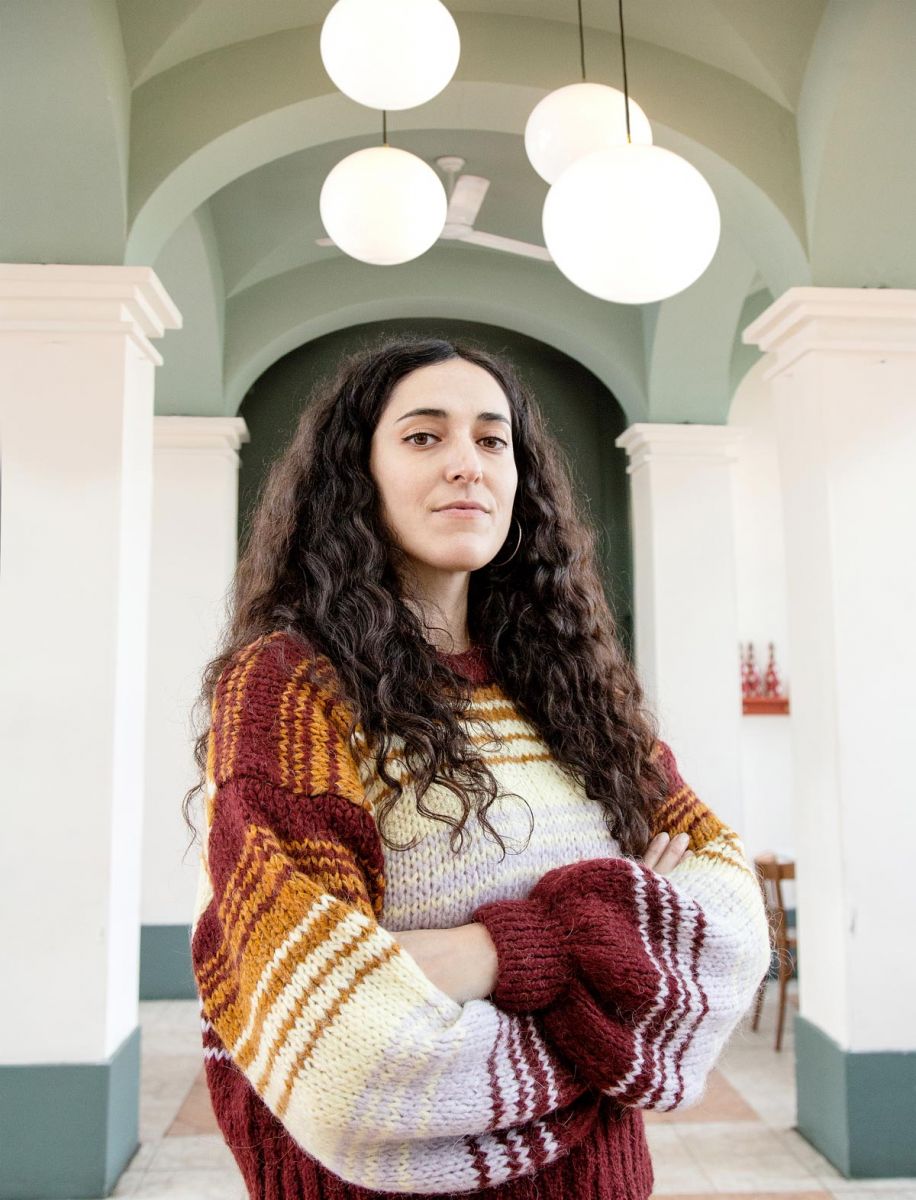
Have you tensified reality in your first film, Young & Beautiful?
No. I spent two years with the protagonists, always with the camera in my hand waiting for the moments. The logic of Young & Beautiful was different, the essence of the film that was our intimacy, our relationship, I was another character. This time it couldn't be produced and it didn't make sense for a person in Japan to be stuck for six months, for example, to capture the moment I was interested in.
In his first film, he made a portrait of people between 20 and 30 years old. Is the situation of precariousness infinite for some?
Yes, I think many of us live like this. In general, ours is the first generation to live worse than our parents. At the same time, we had a different childhood. In our interior came the idea that we were special and that we could be what I wanted amos.Los that we appeared in Young &Beautiful, before the crisis of 2008 not out of society, but we are people who decided to live in alternative spaces. Most of us moved in the assemblies, in the adolescents, in the juvenile assembly movements, in the rave movement and in self-management. Thanks to the crisis, more people have understood our way of life.
And are they still in that direction today?
We are increasingly approaching the “system”, in our own way. I used to occupy him and now no longer, but others did. The ways of spending time are also different. As you grow up, you're changing, and I've realized, among other things, that I've fallen into the trap of my self-exploitation. I work on something that I really like, but two years ago I do no more than work and I am very clear that I would not do it for another person or company. I'm super clear, but that's what I've fallen into and I want to change it.
This often happens in the creative professions. When I first released the first film, I thought it was terrible, but I was in doubt whether it's worth having spent six years of my life and neglected a lot of things.
"I work on something I really like, but two years ago I do no more than work and I'm very clear that I wouldn't do it for another person or company."
What was Nassau 300 talking about, his first short film? In
New York, I resided in the UnionDocs space. In this residence they meet in artists groups from different places with the objective of creating two short films. This year's theme was to do something about the UnionDocs neighborhood. This neighborhood, Williamsburg, is very gentrified, and we wanted to see why that was happening, to reach the core of gentrification. Throughout the year we were in contact with a group of lawyers and they told us about this case. The house was closed by court order and one day the neighbors were given the opportunity to go in search of their things. It was about 20 minutes, and I walked in with them to take pictures.
What is Hiruki Film?
Garazi Erburu, my sister Ione Atenea and I created the producer to produce our films in an alternative way. At first we had to make only our own, but Arantza Santesteban presented us with a script and as it was so good we could not say no. We make our films and help other women make theirs. The truth is that we receive many petitions, including those of many men. You can see that some of you don't know where you're writing. They say “hello, you are interested in…” and I get angry with this. They don't read or read what they put on the web: we're three women and we produce films from other women. I wouldn't respond or I'd say something superedge, but they don't leave me.
Why are there few women in the movie world?
I do not think there is so little. It is true that the higher the budget, the fewer women there are, but now cinema is becoming more democratic thanks to technology. Nothing has to do with the situation 30 years ago. I think the field of cinema that I'm interested in is quite equal, but maybe commercial fiction isn't that much. However, one of the most important films this year at the state level, Girls, has been that of a woman, for example. But it's also true that, according to the data, many women start making movies and only do one job, two or three.
Are there differences in work between women and men?
I don't feel the view of the women... There are other factors that may be more important when defining how to make films, such as the social level or the origin of the author.
Some say that women, because they are women, make films more delicate, sensitive or intimate. My film is witnessed, introverted and perhaps sensitive, but there are men who do this kind of work and women who do not. In some movie genres, there may be fewer women, but the last westers I've seen are women.
How did the idea of vibrating come about? It was an initiative of the Berri
Txarrak group. They wanted to document the last lap, but combine it with a cinematographic vision. They turned to me, they proposed the idea and I really liked it. The production is from Arena Comunicación and Txalap.Art, with the collaboration of Only In Dreams.La the idea of the group was to pay homage to the fans and thank them who were at their side during these 25 years. The only initial condition was that lovers were the protagonists, but we soon realized that both I and Itziar García Zubiri, producer, only that was insufficient and necessary to talk about the trajectory and final decision of Gorka Urbizu.
My challenge was to make a good movie for everyone, whether Berri was a fan or not. And a point of exploration. I wanted to do something that was cinematic. The starting point was to decide what kind of images he wanted. When we think about recording a concert, we're used to quick and brief images. We have images like explosions in the head, and I was very clear that I didn't want that. I wanted very long and close planes to see people's faces. You can't convey the excitement of a concert through the video. In a photo you can catch the moment and project everything you felt, but in a video no, so I set out to focus the camera on people and their emotions.
"You can't convey the excitement of a concert through the video. In a photo you can catch the moment and project on it everything you felt, but in a video no."
In Euskal Herria, Spain,
Germany, Mexico, the United States, Japan and France where the performances of the “Until the Sight” tour have been performed. We followed the group's concerts, but we weren't going with the group. We would go directly to the amateurs and then go to the concert with them. In Japan we had the opportunity to play a small game with the members of Berri and his crew. We ended up in a karaoke, very funny, but in general we haven't been too long together in foreign sessions.
How did they get in touch with amateurs?The contacts of a couple were passed to me
by members of the group, others had seen them in the front row of concerts and the rest I found them through social media, especially via Instagram. I would get in touch, and we would come together with them to share a few moments. They're not conversations. We walk in and out quickly into their lives. They don't talk to the camera. It's like a fictional movie, but with real people and stories.
Are they all fans?
No. There are two American teenagers who didn't know the group, and I invited them to the concert to record their reactions. In another scene, Oihane and his parents appear. She's very fond, but her parents are tired of bringing her daughter to the nine tour concerts.
What does Berri Txarrak have to be so successful?
I don't know, but what I've seen is that they're dedicated to 22,000 people in Kobetamendi and 50 in a store in Los Angeles. That passion is very nice and reaches people.
The problem is that the songs are in Basque for people?I don't think, for the amateurs
I've met in the film no, quite the opposite. People translate letters. It's very easy on the Internet. First you get the music, then you look for the lyrics on the internet and you get even more of the song. I like hardcore and punk music, and I speak in English, but sometimes I don't understand the lyrics at all, and I don't care. The first thing that comes to me is the energy of music.
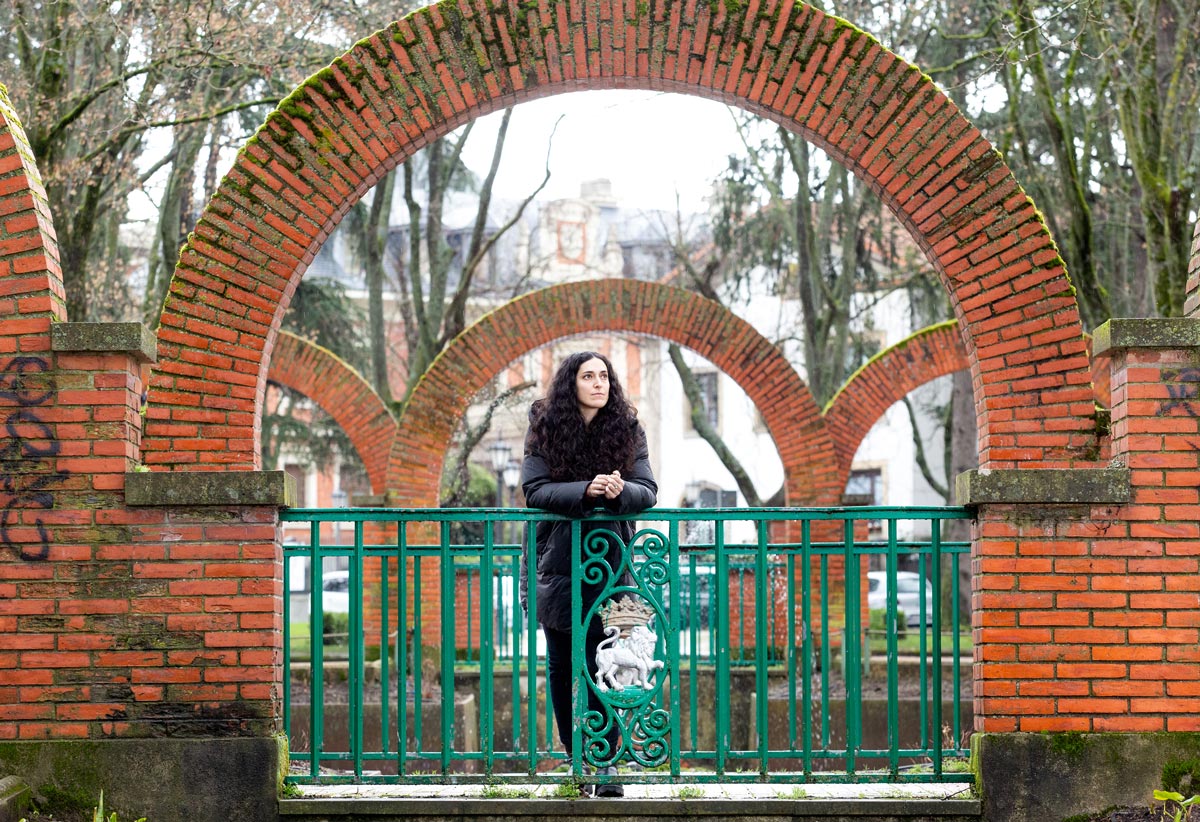
Why the name Tremor?
It took us a lot to choose the name. Music is vibrant, and that vibration of music causes another tremor in people. We may think that the abandonment of the group at its peak would also affect the group and it is something that can cause vertigo. Dardara has a kind of dichotomy, on the one hand the strength – that of music and that which has caused the amateurs to tour – and on the other the strength of the fragility or doubt of tremor. A difficult decision, a shaking in the face of the future or creation…
What is the importance of mustizar in Dardara Theoretical-Point of View?
It makes me a lot of illusion. It's not for giving soap, but it's my favorite festival and also doing in your city has a special value. The influence of points of view is very important in the Basque Country and internationally. It's a benchmark for filmmakers who are looking for nonfiction movies and other referents. Their programming is what I love most about all the local festivals and being among them is a passing.
"Art is necessary to feed the soul and that is what cinema is for. However, from utilitarian discourse, I have my doubts and wonder if something is really necessary that is worth so much money"
What do you intend to do next?
I was given a grant from the Generazinema programme of the Government of Navarra for the elaboration of a script, and I am doing so now. It's a reflection about love and family. When my grandfather died, grandma gave me her Super 8 recordings to digitize and organize it, and so did my Mexican grandfather's file, my partner. All of a sudden these images were mixed in the living room of my house and it was very exciting. Since then, I've been following those images. They follow me. I want to exorcise and go on with my life. With this new film, I don't want to make the story of these families. It's a reflection.
What is film used for?A difficult
question… Art is necessary to feed the soul and for that purpose film is used. However, from utilitarian discourse, I have my doubts and wonder if something is really needed that is worth so much money, and especially if it is public money. If it would not be better for that money to help a number of people lead their lives. But I do not believe, for example, that the military should ask whether military spending is necessary. The need is always questioned about culture. And Tremor is how music helps you at different times in your life.
No other land dokumentalaren zuzendari Hamdan Ballal kolono sionistek jipoitu zuten astelehenean bere herrian, beste hainbat palestinarrekin batera, eta Israelgo militarrek eraman zuten atxilo ondoren. Astarte goizean askatu dute.
Donostiako Tabakaleran, beste urte batez, hitza eta irudia elkar nahasi eta lotu dituzte Zinea eta literatura jardunaldietan. Aurten, Chantal Akerman zinegile belgikarraren obra izan dute aztergai; haren film bana hautatu eta aztertu dute Itxaro Bordak, Karmele Jaiok eta Danele... [+]
35 film aurkeztu dira lehiaketara eta zortzi aukeratu dituzte ikusgai egoteko Euskal Herriko 51 udalerritan. Euskarazko lanak egiten dituzten sortzaileak eta haiek ekoitzitako film laburrak ezagutaraztea da helburua. Taupa mugimenduak antolatzen du ekimena.
Pantailak Euskarazek eta Hizkuntz Eskubideen Behatokiak aurkeztu dituzte datu "kezkagarriak". Euskaraz eskaini diren estreinaldi kopurua ez dela %1,6ra iritsi ondorioztatu dute. Erakunde publikoei eskatu diete "herritar guztien hizkuntza eskubideak" zinemetan ere... [+]
Geroz eta ekoizpen gehiagok baliatzen dituzte teknologia berriak, izan plano orokor eta jendetsuak figurante bidez egitea aurrezteko, izan efektu bereziak are azkarrago egiteko. Azken urtean, dena den, Euskal Herriko zine-aretoak gehien bete dituztenetako bi pelikulek adimen... [+]
Otsailaren 24tik eta martxoaren 1era bitartean, astebetez 60 lan proiektatuko dituzte Punto de Vista zinema dokumentalaren jaialdian. Hamar film luze eta zazpi labur lehiatuko dira Sail Ofizialean; tartean mundu mailako lau estreinaldi eta Maddi Barber eta Marina Lameiro... [+]
A conference for architects has just been held in Madrid to discuss the crisis of the professional architect. They have distinguished the traditional and contemporary way of being an architect. What is traditional? From the epic architect who appears in The Brutalist, where... [+]












